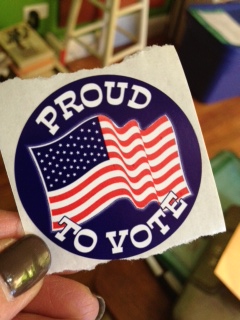I just bought several cans of low-sodium Spam, and last week I used a paper facial mask for skin brightening/whitening.
Yes. I eat gelatinous meat by-products and I want to be white. Not really. Not at all.
I don’t want to be white, though there was a time when I did. I’m just vain and human. I am heading into my mid-40s, getting ready to launch my firstborn, wondering where all that time I thought I had went, and wondering when all those freckles and sun spots appeared. When the melancholy settles into that sweet spot next to gratitude and hope, I like to sit down for some self-care – some nail polish and a facial mask – or with some comfort food – a bowl of rice, a piece of fried Spam, and some kimchee. Sometimes I will indulge in both in the same night.
The funny thing is that both skin whitening and Spam have similar complex roots in human nature, culture, and politics.
Vanity isn’t unique to Korea (my motherland), despite what we could infer from stories about a Korean golfer playing for Japan because she didn’t fit the beauty standards of her homeland or beauty ads asking women “Do you want to be white?”. I just think it’s easier for us Americans to look outside when it’s convenient. It’s called deflection. It’s easier to point out extreme examples in other countries and cultures than it is to look at our own culture’s jacked up standards of beauty and femininity because, face it, looking in the mirror metaphorically can be as frightening as it is to do it the morning after a rice and Spam bender.
Skin whitening exist here in America, but it is more often promoted as skin brightening – eliminating the freckles, sun spots, sun damage, and imperfections that actually come with being alive and aging. The whitening language is connected to class as well as race. I remember being told during my visits to Korea to carry an umbrella or parasol to keep the sun from damaging my skin; darker, tanned skin was associated with the lower-class farmers or outdoor shop owners. I suspect the stigma of darker skin only increased as Western culture influenced Korea. Oh the irony to be Korean & American where just 50 years ago the U.S. government passed and signed into law the Civil Rights Act of 1964 and in the decades since then tanning beds, tanning lotions, and straight up “tanning” is part of looking healthy (by the way shades of orange does not equal tan nor does it look healthy. It looks orange.). Think about it. We needed laws to protect and give full rights to women and people of color while white people want to be “tan”. Cognitive dissonance, anyone?
American culture, in some ways, creates a level of dissonance as it could be construed as a collection of cultural appropriation with a dose of good old-fashioned creativity and varying degrees of separation and offense to the originating cultures. What isn’t American about celebrating our country’s birthday with fireworks? Fusion kimchee taco trucks? Churches hosting Harvest Day celebrations? Communion wafers or chunks of white bread with grape juice?
It isn’t always clear to me what is the “right way” and how that is different than the “Christian way” or the “American way” of doing, being, eating, etc. In my experience, Spam was American (which meant “white” in my home) food tweaked to fit our family’s Korean sensibilities, served with rice and kimchee, rolled into kimbap, or thrown into kimchee stew. For goodness sakes you can buy it at chain grocery stores in the canned food aisle near canned stew and those little sausages NOT the “ethnic” food aisle! It slowly dawned on me in adulthood that Spam was American but not necessarily eaten by white Americans.
Spam arrived in my motherland through the Korean War and the U.S. military. Pre-cooked in a compact container, Spam was a fairly economical source of protein during wartime scarcity. My father has regaled us with stories about Spam, Hershey’s chocolate bars, and other wartime black market items. He probably thinks it’s funny his daughter still eats Spam but has gotten snotty about her chocolate. The kids can have s’mores with Hershey’s while I whip out the good stuff for mine. But my kids have had Spam musubi, and there is no shame. The blue can that releases its contents with a “splat” is iconic American though many of my white American friends have never had it because it wan’t necessarily good enough for home consumption but good enough to import elsewhere. Fine. I’ll take it. I am told that the Spam now produced in Korea uses higher quality ingredients and tastes differently but is just as prized as it once was. Tradition and nostalgia tied with grief, loss, scarcity, and displacement is a powerful force.
So how can I, as an Asian American woman wanting to dismantle and deconstruct the racial ties that try to define me use a skin whitening product? Because sometimes, I live into my privilege of not examining everything I touch, wear, eat, use, etc. to see whether or not the producers of everything around me were paid a fair wage, did not harm animals, did not contribute to an unjust war I did not agree with based on my religious beliefs. Sometimes I like a good bargain and the facial masks were buy four-get two free so I grabbed one of each kind. Sometimes I don’t want to fight every fight because there are so many things to be against and not enough time to be for something. Sometimes I just want to take care of myself with a facial mask and some comfort food and it not be a political or racial statement but rather a way of loving my family because a relaxed, centered, well-fed mommy and wife makes for a happy life.
Sometimes it’s more complicated and complex.

